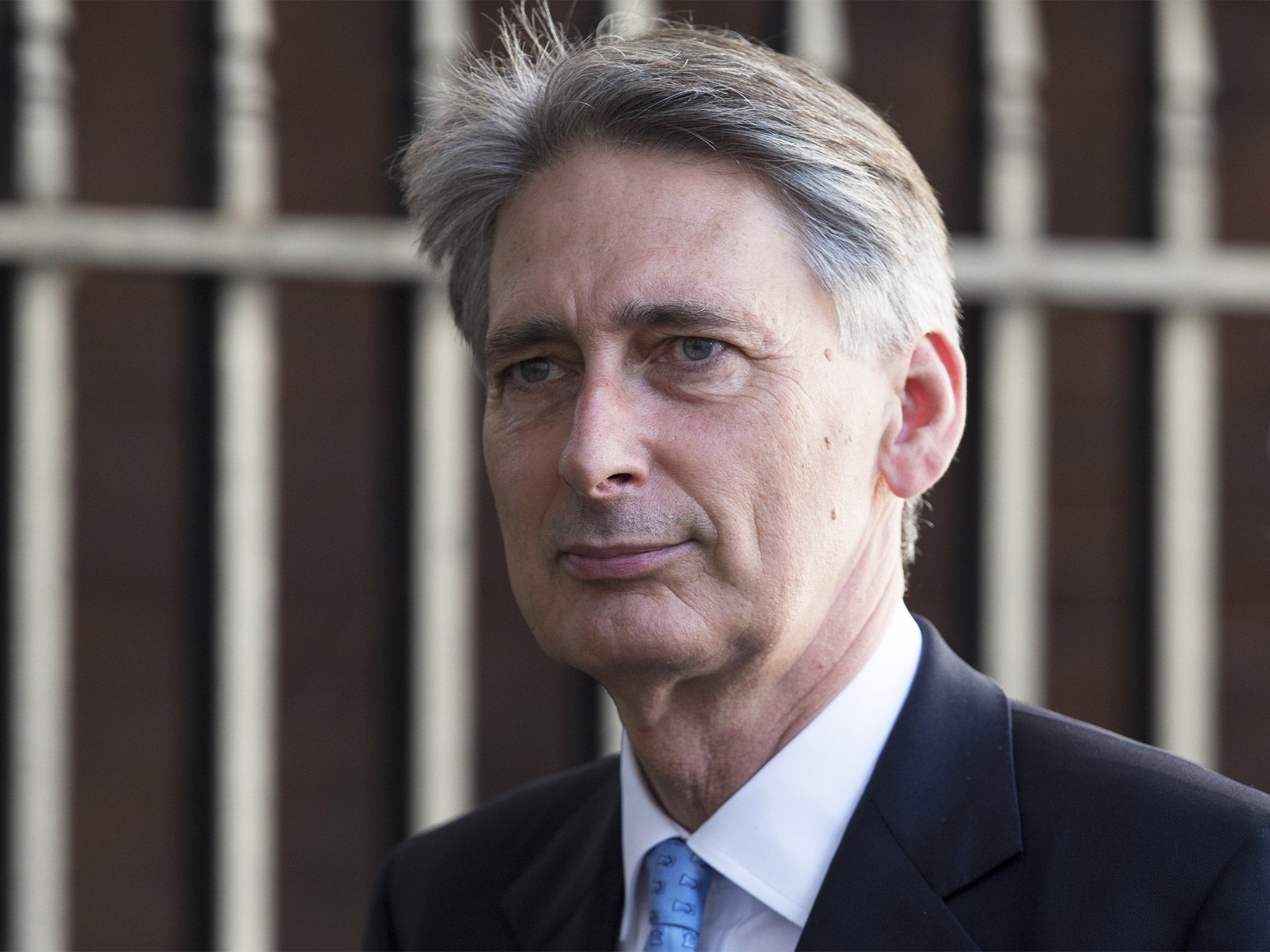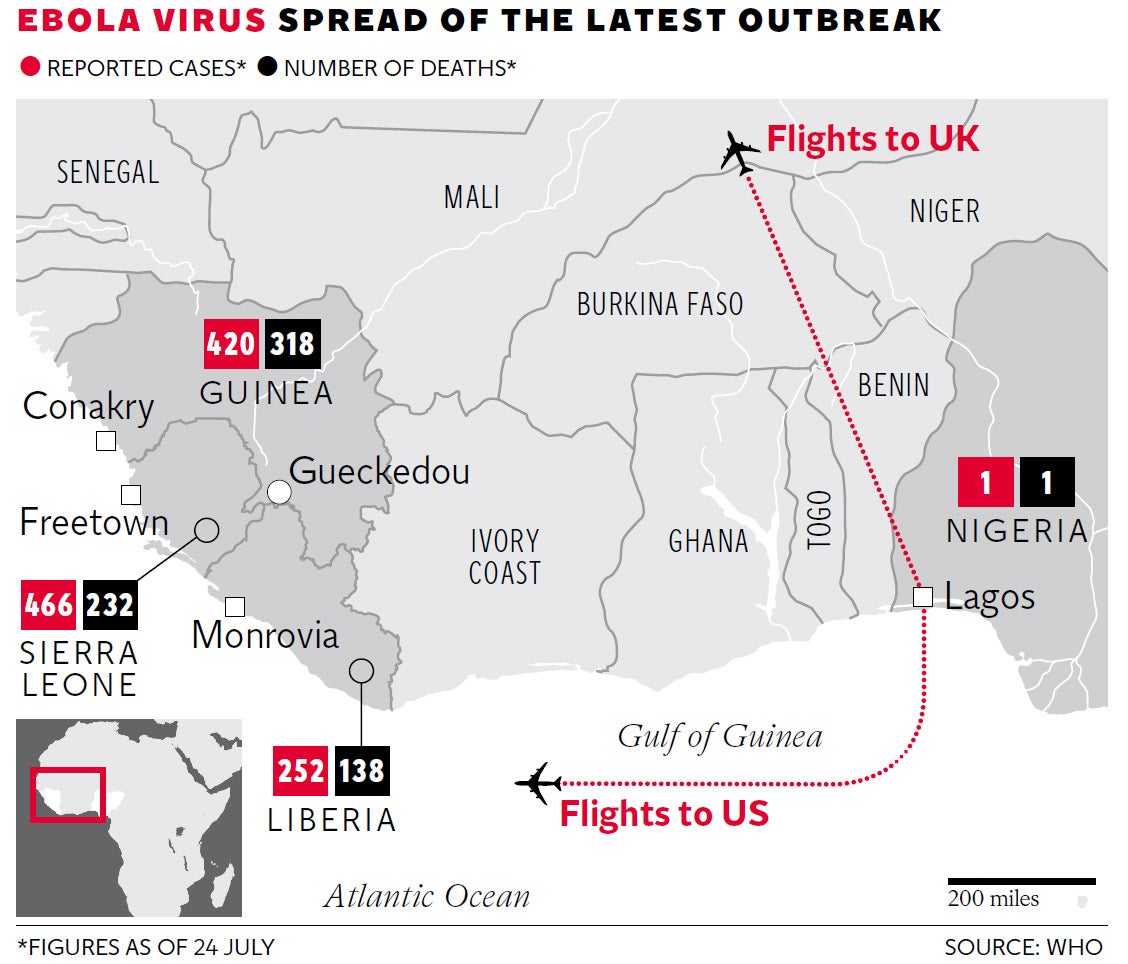Ebola: UK is ready to deal with outbreak, says Foreign Secretary Philip Hammond
But the virus is not a significant risk to UK, say ministers after Cobra meeting

Britain is fully prepared to cope with any case of Ebola entering the country, the Foreign Secretary has said, as he sought to reassure the public over the threat posed by the virus, which has killed hundreds in West Africa.
Philip Hammond chaired a meeting of the Government’s emergency committee Cobra yesterday to ensure that all precautionary measures necessary to prevent an outbreak in the UK have been taken.
However, the Foreign Secretary said that the virus was “not a significant risk to the UK”. Jeremy Hunt, the Health Secretary, who also attended the Cobra meeting along with England’s Chief Medical Officer Dame Sally Davies, said that the risk of the disease “spreading fast” in the UK was low because of the expertise of NHS infectious disease specialists.
Fears that West Africa’s Ebola outbreak might spread to other countries around the world were heightened after it emerged that an American had died from the disease in the Nigerian capital Lagos, after travelling from Liberia – one of the worst-affected countries. Experts have warned that the virus could be spread further afield by infected people travelling by plane.
The UK Border Agency has been warned to be aware of the symptoms of the disease – which include high fever, weakness, vomiting and diarrhoea – while hospitals around the UK have also been alerted. Any patient suspected of carrying the virus could be diagnosed within 24 hours and would be isolated in a special unit immediately, health officials have said.
So far, the only suspected case of Ebola in the UK has returned negative after testing. A man was tested after flying into Birmingham Airport on Monday. He was taken to hospital by ambulance after complaining of feeling feverish following a flight from Benin, which neighbours Nigeria. The Department of Health confirmed the man had been given the all-clear.
West Africa’s Ebola outbreak, which began in February, is the worst in history. It has killed more than 670 people in Guinea, Sierra Leone and Liberia. However, Mr Hammond said that infection control measures in the UK were such that a similar outbreak would not happen in this country, even if the virus were brought into the UK by someone travelling from West Africa.
“The indicators we get is that this is not growing exponentially and that [Ebola] appears to be contained in the worst outbreak areas,” Mr Hammond said following the Cobra meeting yesterday. “In terms of the UK, the issue is about the possibility of someone who has contracted the disease in Africa getting sick here. It is not about the disease spreading in the UK. We have different standards of infection control.” Mr Hunt said that the NHS had scientists and doctors with “a lot of experience dealing with dangerous infectious diseases”.
A 40-year-old American citizen, Patrick Sawyer, died of Ebola in Lagos on Friday after developing symptoms on a flight from Liberia, via Togo. He had travelled from Liberia where he had been caring for his sister, who is also believed to have had Ebola. The Togo-based airline ASKY has since suspended all flights to and from the capitals of Liberia and Sierra Leone to help prevent the spread of the virus. Most border crossings into Liberia have also been closed.

Mr Hammond said that part of the UK’s response to Ebola would involve “additional measures to control the outbreak in West Africa”.
International aid agencies working in the region, including Médecins Sans Frontières and the International Federation of the Red Cross have said that the situation remains out of control and have appealed for greater international collaboration to support efforts to inform and treat people in often remote communities across West Africa.
A number of healthcare workers fighting the outbreak have themselves been struck down with the disease. Sierra Leone’s top Ebola doctor, Sheikh Umar Khan, described as a “national hero”, died on Tuesday, shortly after three nurses working with him also died. An American doctor, Kent Brantly, is in intensive care in Monrovia, Liberia, after contracting the disease.
Q&A: What you need to know about Ebola
What is Ebola?
Ebola virus disease is an often fatal disease in humans, caused by the Ebola virus, which is transmitted from wild animals. It is spread via contact with bodily fluids.
How dangerous is it?
Very. It causes fever, intense weakness, vomiting, diarrhoea, impaired kidney and liver function and in some cases internal and external bleeding. It has killed 90 per cent of people affected by it since the 1970s, and there is still no drug to cure it.
How long has it been around?
The first known cases were in 1976, with two outbreaks in Sudan and the Democratic Republic of Congo. The latter outbreak occurred near the Ebola River, giving the virus its name. These first outbreaks killed 431 people and were, until this year, the worst on record.
Why is it back in the news?
A new outbreak, which began in February, has quickly become the worst ever, claiming more than 670 lives in Guinea, Sierra Leone and Liberia. A patient has also died in Nigeria.
What is the threat to the UK?
Low. Even if an infected person travelling from West Africa were to enter the UK, control measures in this country are highly effective. There has never been a confirmed case of Ebola in the UK.
How can I protect myself?
You will only need to take precautions if you are in West Africa, or neighbouring countries. If you have visited any of these areas and experience any of the symptoms of Ebola, seek medical advice.
Join our commenting forum
Join thought-provoking conversations, follow other Independent readers and see their replies
Comments